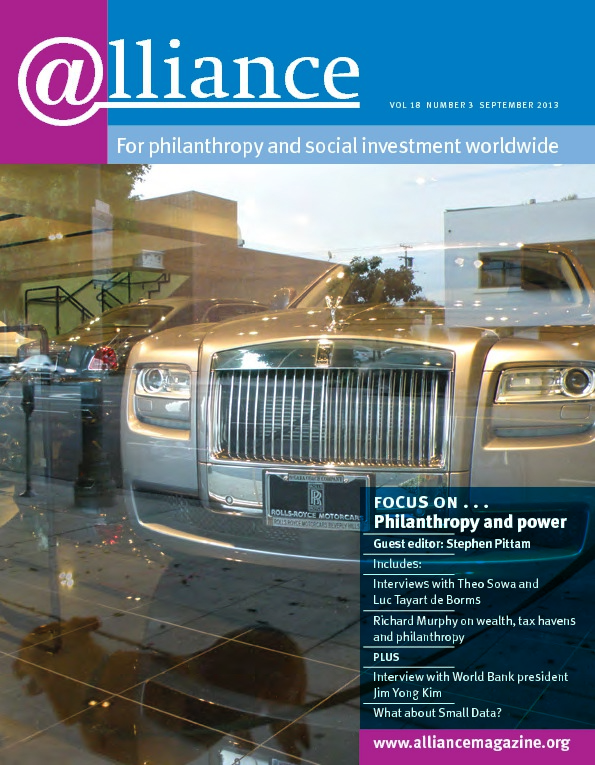Nick Deychakiwsky is a great colleague and someone who has been supportive of the organization I lead in a variety of ways: as an adviser to me, a member of our advisory board in the past, and a programme officer who has supported us with grant funding. However, I believe his article, ‘The programme officer’s dilemma’, perpetuates a series of unfortunate myths: that there is a tension between having strong values and being data-driven and analytic; that quantitative data is somehow destined to be used for ‘accountability’ rather than ‘learning’; that discipline and opportunism are in tension – the list goes on. In fact, these are false choices.
At the Center for Effective Philanthropy, we have seen that effective foundations and programme staff understand the moral imperative of being data-driven. They recognize that, if they are allocating resources intended to help people and communities, they need to know as best they can whether those resources are having the desired effect.
Deychakiwsky writes, ‘naturally, the simplest way to get a desired result is to control the process.’ I don’t think so. The most effective foundations recognize that strategy in philanthropy is uniquely challenging and must be developed in an iterative manner, consultatively and informed by those on the ground – grantees and intended beneficiaries. The most effective foundations recognize that they cannot control the process, but that they can influence it. They understand that, whereas in business you want strategy to be yours alone, for foundations, if a strategy is yours alone, you will surely fail.
But Deychakiwsky, like many inside and outside philanthropy, equates a focus on data and analysis with ‘market thinking’ and ‘business approaches’. This, too, is a myth: having worked in the business world and the non-profit sector, I can tell you that there is plenty of shoddy analysis and ill-informed decision-making, as well as the opposite, in both sectors.
We should reject the false dichotomies and embrace the moral imperative to be as effective as we can be. It’s a values thing.
Phil Buchanan
President, Center for Effective Philanthropy





Comments (0)